(Vatican Radio) Pope Francis granted a special audience on Thursday in the Paul VI Hall, to people suffering from Huntington’s Disease, along with their caregivers, researchers, and patient advocates. Below, please find the full text of Pope Francis’ remarks on the occasion.
*************************************
Dear Brothers and Sisters,
I welcome you with joy, and I greet each one of you present at this opportunity for meeting and reflection dedicated to Huntington’s Disease. I wholeheartedly thank all those who worked to make this day possible. I am grateful to Dr Cattaneo and to Mr Sabine for their introductory words. I would like to extend my greeting to all people who, in their body and in their life, carry signs of this disease, as well as those who suffer from other so-called rare diseases.
I know that some of you have had to brave a very long and difficult journey in order to be here today. I thank you and I am happy you are here. I have listened to your accounts and the difficulties you must face each day; I understand how much tenacity and dedication your families, doctors, health care workers and volunteers have as they support you in a journey that poses many uphill climbs, some of which are extremely difficult.
For far too long. the fears and difficulties that characterize the life of people affected by Huntington’s Disease have surrounded them with misunderstandings and barriers, veritably excluding them. In many cases the sick and their families have experienced the tragedy of shame, isolation and abandonment. Today, however, we are here because we want to say to ourselves and all the world: “HIDDEN NO MORE!”, “OCULTA NUNCA MAS!”, “MAI PIU’ NASCOSTA!”. It is not simply a slogan, so much as a commitment that we all must foster. The strength and conviction with which we pronounce these words derive precisely from what Jesus himself taught us. Throughout his ministry, he met many sick people; he took on their suffering; he tore down the walls of stigma and of marginalization that prevented so many of them from feeling respected and loved. For Jesus, disease is never an obstacle to encountering people, but rather, the contrary. He taught us that the human person is always precious, always endowed with a dignity that nothing and no one can erase, not even disease. Fragility is not an ill. And disease, which is an expression of fragility, cannot and must not make us forget that in the eyes of God our value is always priceless.
Disease can also be an opportunity for encounter, for sharing, for solidarity. The sick people who encountered Jesus were restored above all by this awareness. They felt they were listened to, respected, loved. May none of you ever feel you are alone; may none of you feel you are a burden; may no one feel the need to run away. You are precious in the eyes of God; you are precious in the eyes of the Church!
I now turn to the families. Those who experience Huntington’s Disease know that no one can really overcome loneliness and despair if they do not have people at their side who, with self-sacrifice and steadfastness, make themselves ‘travel companions’. You are all this: fathers, mothers, husbands, wives, children, brothers and sisters who, on a daily basis, silently but effectively, accompany your family members on this difficult path. For you, too, at times, the path is an uphill climb. For this reason, I encourage you, too, not to feel you are alone; not to give in to the temptation of the sense of shame or guilt. The family is the privileged place of life and of dignity, and you can cooperate to build that network of solidarity and of help that the family alone can guarantee, and which the family is first called to live.
I speak to you, physicians, health care workers, volunteers of the associations that are involved with Huntington’s Disease and with those who suffer from it. Among you there are also workers from the Ospedale Casa Sollievo della Sofferenza, who, both with assistance and with research, express the contribution of a work of the Holy See in this most important field. The service that you all provide is valuable, because it is surely your dedication and your initiative that give tangible shape to the hope and motivation of the families who trust in you. The disease poses many challenges related to diagnostics, therapy and assistance. May the Lord bless your work: may you be a point of reference for patients and their families who, in various circumstances, find themselves having to face the already difficult trials that the disease entails, in a social-health care context which often is not oriented to the dignity of the human person. In this way, however, difficulties multiply. Often adding to the disease are poverty, forced separations and a general sense of dismay and mistrust. For this reason, national and international associations and institutions are vital. You are like hands that God uses to sow hope. You are the voices that these people have so as to claim their rights!
Lastly, geneticists and scientists are present here, who, for some time, sparing no energy, have dedicated themselves to studying and researching a treatment for Huntington’s Disease. Clearly, there is a great deal of expectation surrounding your work: resting on your efforts are the hopes of finding the way to a definitive cure for the disease, but also of improving the living conditions of these brothers and sisters, and of accompaniment, especially in the delicate phases of diagnosis, at the onset of the first symptoms.
May the Lord bless your task! I encourage you to always pursue it with means that do not contribute to fuelling that “throw-away culture” that at times infiltrates even the world of scientific research. Some branches of research, in fact, utilize human embryos, inevitably causing their destruction. But we know that no ends, even noble in themselves, such as a predicted utility for science, for other human beings or for society, can justify the destruction of human embryos.
Brothers and sisters, as you see, you are a large and motivated community. May the life of each of you — both of those who are directly affected by Huntington’s Disease and those who work hard every day to support the sick in their pain and difficulty — be a living witness to the hope that Christ has given us. Even through suffering there passes a path of abundant good, which we can travel together.
I thank all of you! Please, do not forget to pray for me, as I will pray for you.
…………………
DISCORSO DEL SANTO PADRE FRANCESCO
AI MALATI DI COREA DI HUNTINGTON E AI LORO FAMILIARI
Aula Paolo VI
Giovedì, 18 maggio 2017
[Multimedia]
Cari fratelli e sorelle,
vi accolgo con gioia e saluto ciascuno di voi presente a questo momento di incontro e di riflessione dedicato alla malattia di Huntington. Ringrazio di cuore tutti coloro che si sono prodigati perché questa giornata potesse avere luogo. Sono grato alla Signora Cattaneo e al Signor Sabine per le loro parole di introduzione. Vorrei estendere il mio saluto a tutte le persone che nel loro corpo e nella loro vita portano i segni di questa malattia, come pure a quanti soffrono per altre patologie cosiddette rare.
So che alcuni di voi hanno dovuto affrontare un viaggio molto lungo e non facile per essere qui oggi. Vi ringrazio e mi rallegro per la vostra presenza. Ho ascoltato le vostre storie e le fatiche che ogni giorno dovete affrontare; ho compreso con quanta tenacia e con quanta dedizione le vostre famiglie, i medici, gli operatori sanitari e i volontari sono al vostro fianco in un cammino che presenta tante salite, alcune molto dure.
Per troppo tempo le paure e le difficoltà che hanno caratterizzato la vita delle persone affette da Huntington hanno creato intorno a loro fraintendimenti, barriere, vere e proprie emarginazioni. In molti casi gli ammalati e loro famiglie hanno vissuto il dramma della vergogna, dell’isolamento, dell’abbandono. Oggi però siamo qui perché vogliamo dire a noi stessi e a tutto il mondo: “HIDDEN NO MORE”, “OCULTA NUNCA MAS”, “MAI PIU’ NASCOSTA”! Non si tratta semplicemente di uno slogan, bensì di un impegno che ci deve vedere tutti protagonisti. La forza e la convinzione con cui pronunciamo queste parole derivano proprio da quanto Gesù stesso ci ha insegnato. Durante il suo ministero, Egli ha incontrato tanti ammalati, si è fatto carico delle loro sofferenze, ha abbattuto i muri dello stigma e della emarginazione che impedivano a tanti di loro di sentirsi rispettati e amati. Per Gesù la malattia non è mai stata ostacolo per incontrare l’uomo, anzi, il contrario. Egli ci ha insegnato che la persona umana è sempre preziosa, sempre dotata di una dignità che niente e nessuno può cancellare, nemmeno la malattia. La fragilità non è un male. E la malattia, che della fragilità è espressione, non può e non deve farci dimenticare che agli occhi di Dio il nostro valore rimane sempre inestimabile.
Anche la malattia può essere occasione di incontro, di condivisione, di solidarietà. Gli ammalati che incontravano Gesù venivano rigenerati anzitutto da questa consapevolezza. Si sentivano ascoltati, rispettati, amati. Nessuno di voi si senta mai solo, nessuno si senta un peso, nessuno senta il bisogno di fuggire. Voi siete preziosi agli occhi di Dio, siete preziosi agli occhi della Chiesa!
Mi rivolgo ora alle famiglie. Chi vive la malattia di Huntington sa che nessuno può davvero superare la solitudine e la disperazione se non ha accanto a sé delle persone che con abnegazione e costanza si fanno “compagne di viaggio”. Voi siete tutto questo: padri, madri, mariti, mogli, figli, fratelli e sorelle che quotidianamente, in modo silenzioso ma efficace, accompagnano in questo duro cammino i propri familiari. Anche per voi talvolta la strada è in salita. Per questo incoraggio anche voi a non sentirvi soli; a non cedere alla tentazione del senso di vergogna e di colpa. La famiglia è luogo privilegiato di vita e di dignità, e voi potete cooperare a costruire quella rete di solidarietà e di aiuto che solo la famiglia è in grado di garantire e che essa per prima è chiamata a vivere.
E mi rivolgo a voi, medici, operatori sanitari, volontari delle associazioni che si occupano della malattia di Huntington e di chi ne è affetto. Tra voi ci sono anche gli operatori dell’Ospedale Casa Sollievo della Sofferenza, che, sia con l’assistenza sia con la ricerca, esprimono il contributo di un’opera della Santa Sede in questo ambito così importante. Il servizio di tutti voi è prezioso, perché è certamente dal vostro impegno e dalla vostra iniziativa che prende forma in modo concreto la speranza e lo slancio delle famiglie che si affidano a voi. Le sfide diagnostiche, terapeutiche e assistenziali che la malattia propone sono tante. Che il Signore possa benedire il vostro lavoro: possiate essere punto di riferimento per i pazienti e i loro familiari, che in diverse circostanze si trovano a dover affrontare le già dure prove che la malattia comporta, in un contesto socio-sanitario che spesso non è a misura della dignità della persona umana. Così però le difficoltà si moltiplicano. Alla malattia spesso si aggiungono la povertà, le separazioni forzate e un generale senso di smarrimento e di sfiducia. Perciò le associazioni e le agenzie nazionali e internazionali sono vitali. Siete come braccia che Dio usa per seminare speranza. Siete voce che queste persone hanno per rivendicare i loro diritti!
Infine, sono qui presenti genetisti e scienziati che da tempo, senza lesinare energie, si dedicano allo studio e alla ricerca di una terapia per la malattia di Huntington. È evidente che sul vostro lavoro c’è uno sguardo carico di attesa: dai vostri sforzi dipende la speranza di poter trovare la via per la guarigione definitiva dalla malattia, ma anche per il miglioramento delle condizioni di vita di questi fratelli e per l’accompagnamento, soprattutto nelle delicate fasi della diagnosi, di fronte all’insorgenza dei primi sintomi. Che il Signore benedica il vostro impegno! Vi incoraggio a perseguirlo sempre con mezzi che non contribuiscono ad alimentare quella “cultura dello scarto” che talora si insinua anche nel mondo della ricerca scientifica. Alcuni filoni di ricerca, infatti, utilizzano embrioni umani causando inevitabilmente la loro distruzione. Ma sappiamo che nessuna finalità, anche in sé stessa nobile, come la previsione di una utilità per la scienza, per altri esseri umani o per la società, può giustificare la distruzione di embrioni umani.
Fratelli e sorelle, come vedete siete una comunità numerosa e motivata. La vita di ciascuno di voi, sia di chi è direttamente segnato dalla malattia di Huntington sia di chi si impegna quotidianamente ad affiancarsi al dolore e alla fatica degli ammalati, possa essere testimonianza viva della speranza che Cristo ci ha donato. Anche attraverso la sofferenza passa una strada feconda di bene che possiamo percorrere insieme.
Grazie a tutti! Il Signore vi benedica, e per favore, non dimenticatevi di pregare per me, come io pregherò per voi. Grazie.

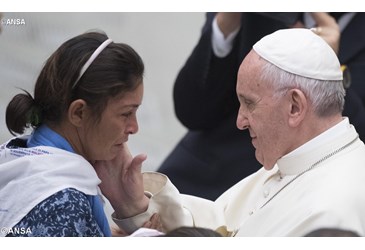
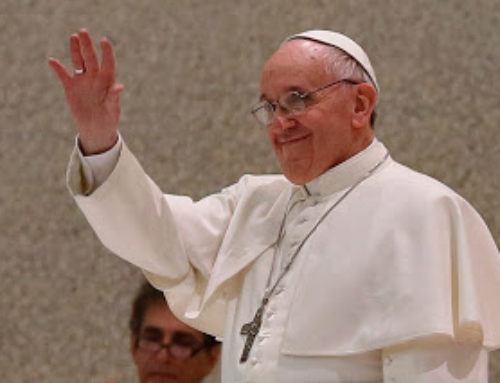
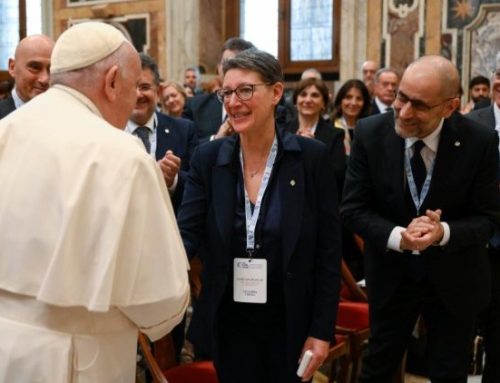
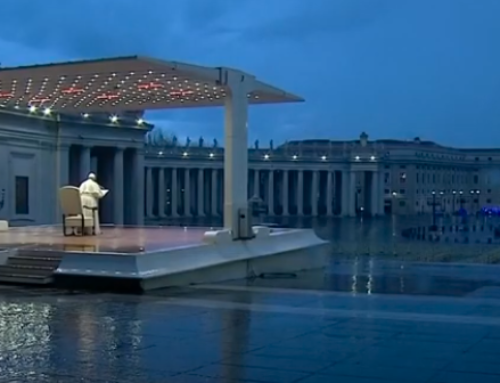
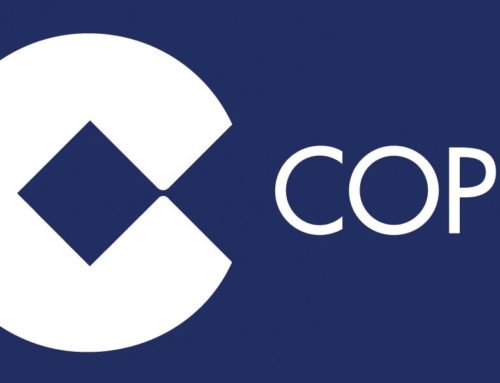
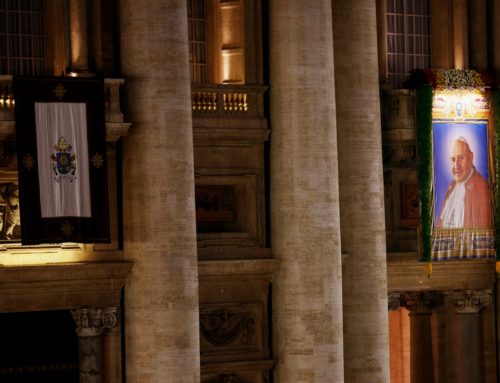



http://w2.vatican.va/content/francesco/it/speeches/2017/may/documents/papa-francesco_20170518_malati-corea-huntington.html